With militancy in Kashmir under massive pressure, it is gradually getting revived in Pir Panchal Valley. There have been a series of fatal attacks on the security grid in the last three years. However, after the recent ambush in which four soldiers fell in their line of duty, three civilians lost their lives allegedly to torture that led the Defence Minister to visit the area, reports Raashid Andrabi
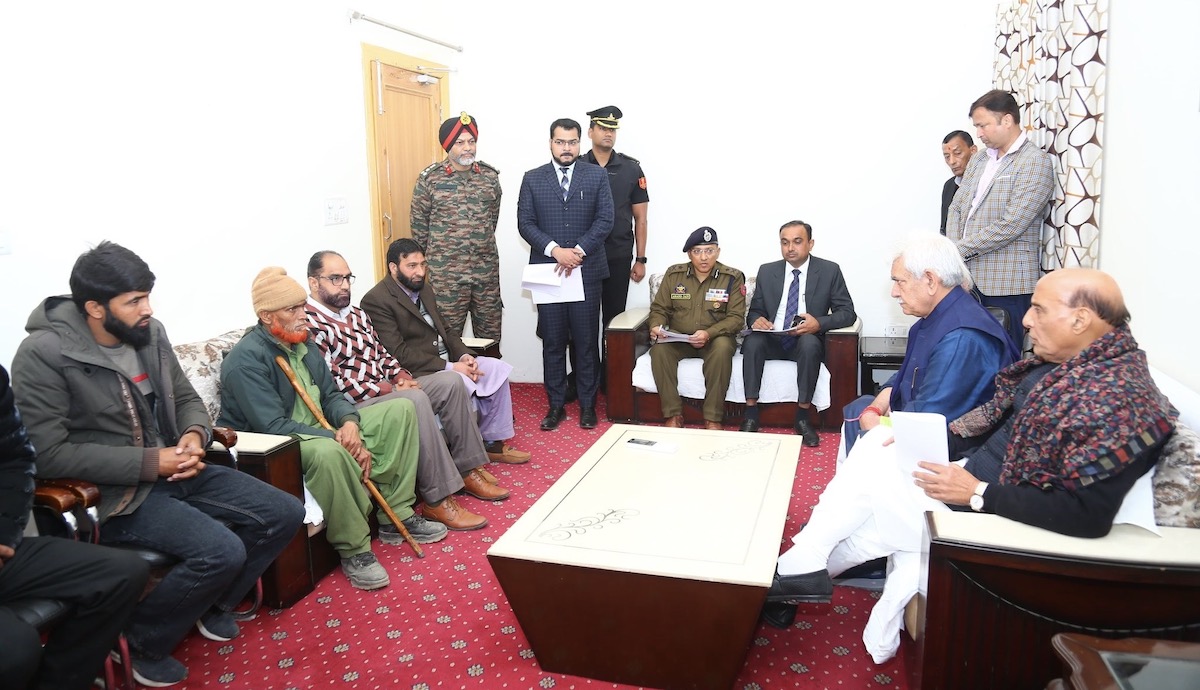
Along the historic 83.9 km Mughal Road, the once silent and serene village of Baffliaz has now garnered attention for reasons beyond its Mughal legacy. Known for centuries as a pivotal halt on the medieval track, this village was almost a gateway to Kashmir as not many habitations were around till the travellers crossed into Kashmir. Its strategic location is vital. Not far away from the Kashmiri-speaking Surankot town, the Buffliaz connects Kashmir, Poonch and Rajouri.
Last week, Baffliaz was in the limelight and dominated the news for many days, for all the wrong reasons. It was the epicentre of a situation that led to the internet shutdown, restricted access, cordons, intensive search operations and a series of high-profile visits including that of the Defence Minister, Rajnath Singh. These visits came in the last week of 2023, a year that witnessed the region emerging as the hotbed of militancy. The Pir Panchal Valley comprising Poonch and Rajouri districts recorded more than 50 killings. The region, once a hotbed of insurgency in the late 1990s experienced a period of relative peace in the 2000s and now is again hogging the headlines for frequent gun battles between the army and the militants.
The new graves of three civilians that emerged in Baffliaz cemetery were the key reason for the dramatic turn of events.
The Ambush
It all started when two army vehicles, a mini-truck and a gypsy, en route to Thanamandi, Rajouri, apparently for a search operation, were attacked by militants. It was later learnt that heavily armed militants, reportedly using US-made M4 carbine assault rifles, surrounded the army vehicles at a blind curve at Dhatyar Morh between Dhera Ki Gali and Baffliaz and opened fire. The attack was sudden and, at a spot, where the drivers usually slow down to negotiate the blind curve.
Four soldiers were killed and three were injured. Attackers used “steel core ammo”, took away the weapons post-attack, and also appeared to have been wearing headgear fitted with body-cam to shoot photographs and videos of the attack.
“Five personnel of the Rashtriya Rifles Unit deployed for Counter Terrorist operations in this area have unfortunately lost their lives in the incident,” the army’s northern command said in the statement on the attack at 3.45 pm on December 21, 2023, adding an operation was in progress since the night of December 20. Another soldier was seriously wounded and taken to a military hospital for treatment, the statement added. The slain soldiers were identified as Naiks, Birendder Singh, Karan Kumar, Riflemen Gautam Kumar and Chandan Kumar. Two of them belonged to Uttarakhand and one each to Uttar Pradesh and Bihar. The ambush came within a fortnight after Home Minister Amit Shah announced plans for a ‘terror-free’ Jammu and Kashmir by 2026.
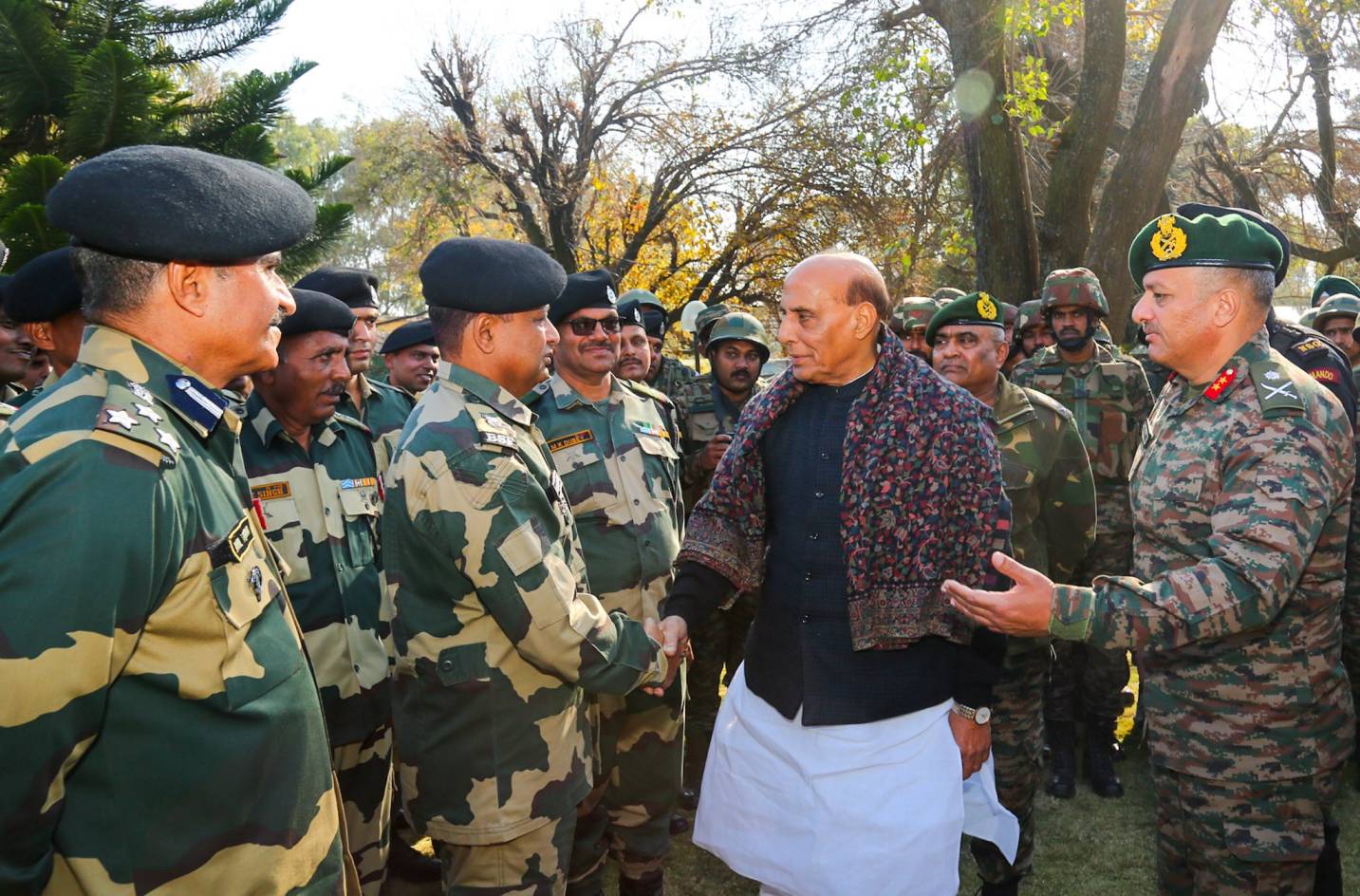
The attack was reported from a spot called Topa Pir, the same spot where the last attack took place on December 1, 2001, in which Rajouri District and Sessions Judge V K Phool along with his friend and two cops lost their lives. In the December 21, ambush a civilian truck was also caught in the firing at a place where there is almost no civilian population around, but none was reported to have been injured in the vehicle.
As is normal in such attacks, the counter-security grid quickly gets into action. A major operation to apprehend the attackers was launched. The security grid believed the assailants might be hiding in the dense forest area. Cordons were placed around nearby areas, and plans for reinforcements were made. Access to the area was regulated. “Operations are in progress to locate the perpetrators,” the army said.
Minutes after the attack, all surrounding villages in the belt were thoroughly searched. Many locals were soon taken in for questioning. Initial reports suggest the army has detained two civilians for questioning. There were reports of drones being flown around and sniffer dogs put to service in the belt.
The Collateral Damage
A night after the event on December 22, when the area was in tight cordon, federal investigator, NIA sent a specialised team led by a Deputy Inspector General to get basic details.
Later that day, the dead bodies of three locals were found near the attack site. The incident soon triggered protests. The political class across the country quickly united in demanding answers. The incident was also followed by an unverified video depicting locals being brutally thrashed by some men in uniform which fuelled the public anger.
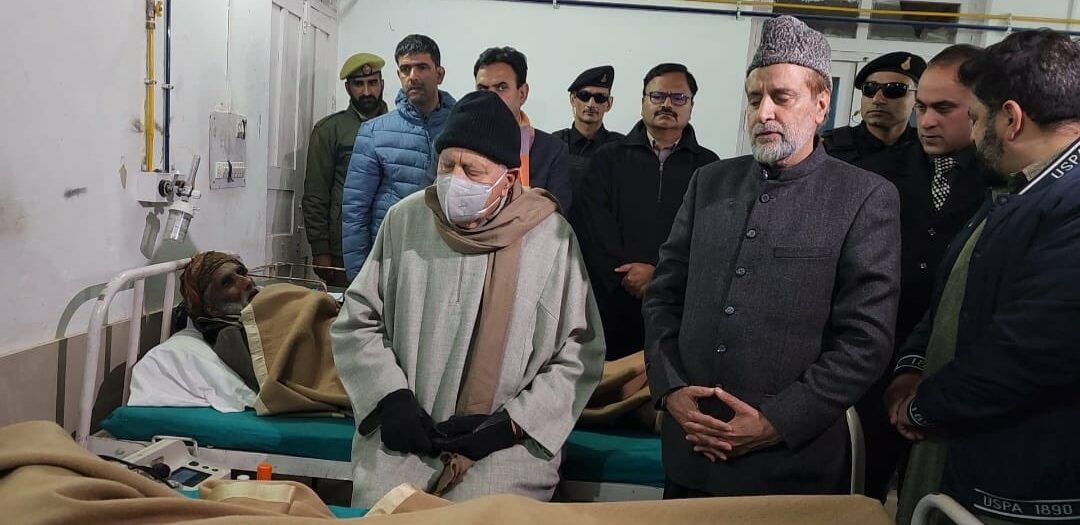
The initial reports said the “three civilians were found dead under mysterious circumstances”. It was followed up by the Jammu and Kashmir administration saying that “legal action” was taken.
By late in the evening on December 22, a brief video clip stormed the social media. It added to the tensions in the region and Kashmir too.
Top civilian and police officers rushed to the spot and were literally in the garrison with top officers of the region till late in the night.
Detained Civilians
The locals who were, as per families, picked up for questioning by the Army on the night of the attack exist now as mere echoes of the conflict.
Shabir Ahmed, 30, once a porter for Rashtriya Rifles, ran a confectionery shop in Topa Pir Mohalla. Married to Rakia Begum and awaiting their second child, Shabir was found lifeless with bruises on his body. Shabir’s mother died five months back.
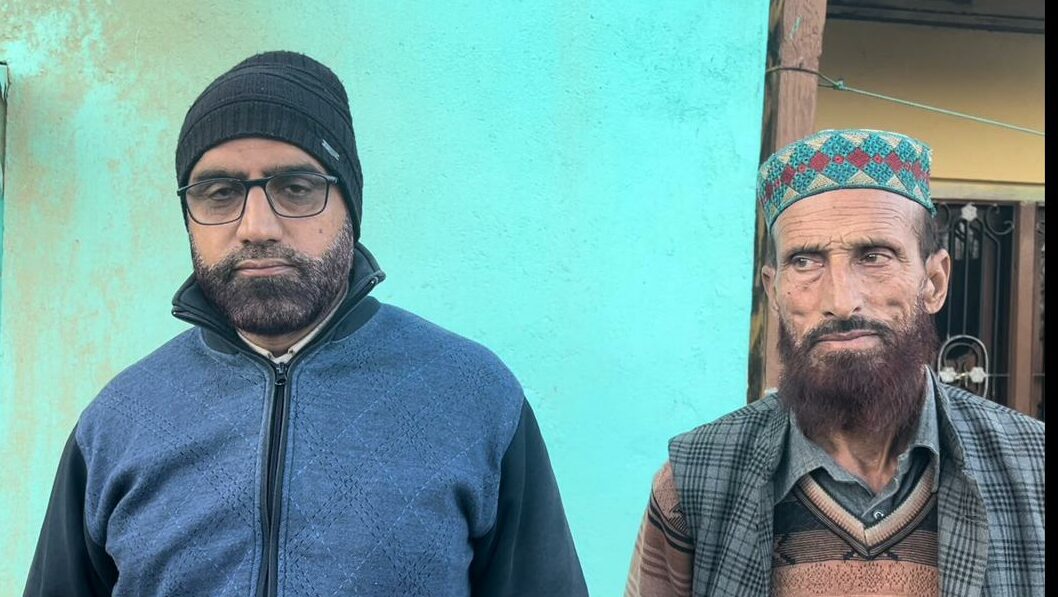
Safeer Ahmed, 45, another local contractor from the area and a social activist, met his end amid his MGNREGA projects. Safeer leaves behind his wife Zareena and four young children.
Mohammad Showkat, 22, a village shepherd, recently wedded to Fatima Begum. Anticipating their first child, Showkat shouldered the care of his parents as his elder brothers toiled as porters in Kashmir.
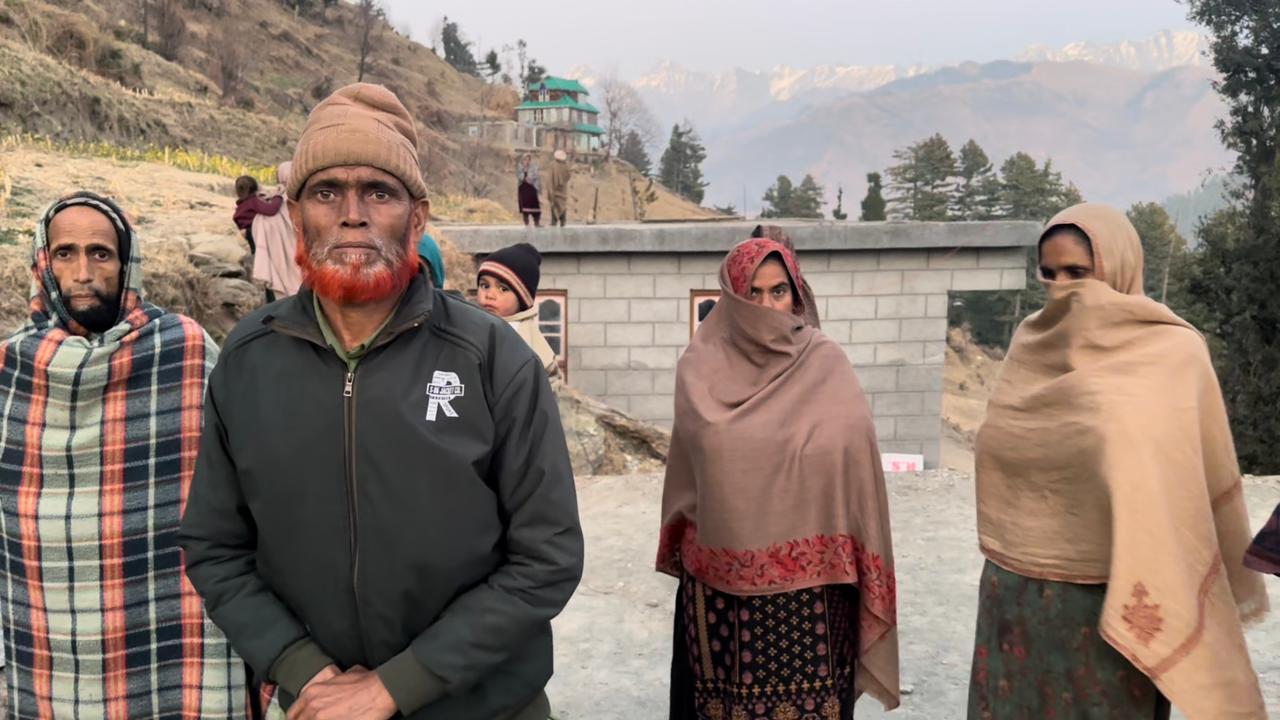
Family members and neighbours of the deceased trio revealed that their relatives featured in the video clip that had gone viral. “Mehmood Ahmed, the village’s sarpanch, identified Shabir and Showkat from the viral video, in which soldiers can be seen brutally beating the captive men,” a report in The Wire said. “Mohammad Siddique, uncle of Mohammad Showkat, one of the three civilians allegedly killed in Army custody, stated that it was his nephew seen in the video, pleading with a lathi-wielding soldier with folded hands to let him go.”
From Jammu, The Indian Express reported the graphic details of the happening. Relatives of the five civilians told the newspaper in GMC Rajouri that the injured (five) were brought in a jonga and left on the roadside at Dehra Ki Gali by the security forces in the night. “They were about to take the jonga back to Buffliaz’s side, but we stopped them. They were in a very bad condition, unable to call for help, or even make a call to their family members from the mobile phone lying near them,” one relative was quoted as having said. “One of the injured, Farooq, was taken home by his family members on a cot, and the other four were brought to Thanamandi CHC and from there to GMC, Rajouri, the villagers said.”
The families agreed to take the mortal remains of the slain trio only on December 23, evening after a lot of assurances by the government.
Quick Response
The situation was tense and could spill over. The video clip, which Mehbooba Mufti claims was “deliberately leaked and disseminated with the diabolical intention of conveying a chilling message”, did a huge damage forcing the government to act and act fast. Quickly the political class strongly reacted so did the residents in the region as well. Some political parties in Kashmir claimed they were restricted from visiting the area.
“Terrorists attacked Surankote and our soldiers lost their lives. Our police personnel detained some locals. Are we fighting terrorists or our people? If we are fighting with our people then we can never win this,” Dr Abdullah said on December 23. “I want to request Home Minister Amit Shah that he should come to Surankote to address people’s sentiments. It is important that he tells people that they would investigate the issue and put it in front of people. It is a serious situation and violation of human rights.”
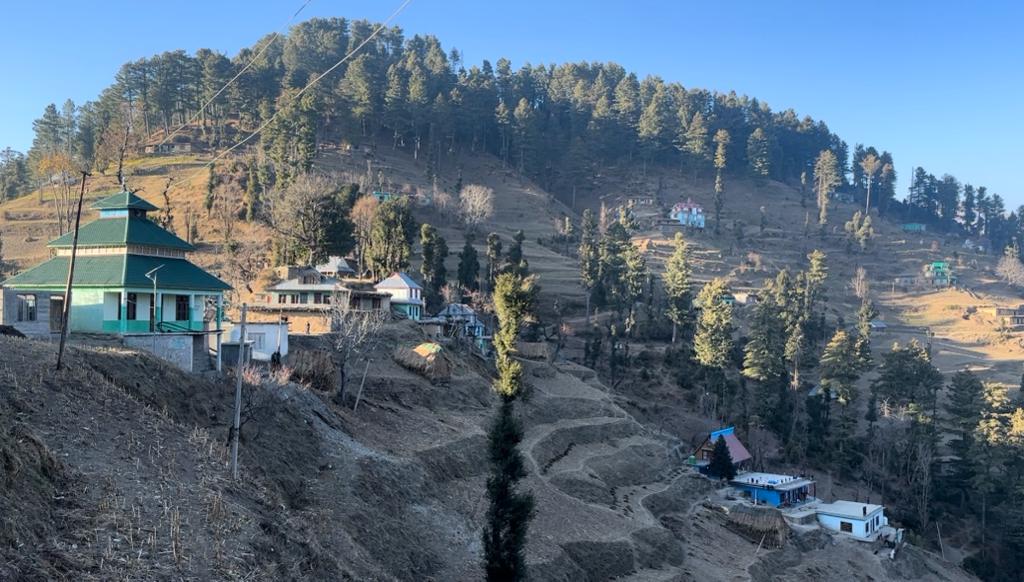
A day later, the Army initiated an inquiry into the killings and three high-ranking officers, including Brigadier Padam Acharya stationed in Rajouri were shifted. The other two officers, holding the ranks of Colonel and Lieutenant Colonel, also underwent relocation.
Pertinent to mention, the first information report (FIR) in the case of civilian deaths has invoked Section 302 of the Indian Penal Code, addressing murder.
As per a report in The Hindu, the FIR was filed at the Surankote police station against individuals categorised as ‘unknown’ accused. The report asserts it as a cognizable offence under Section 302 of the IPC.
“As the instant case is of special nature, the 3rd of its kind from the said village and 3rd of its kind during the current year, whereas the 41st case of special nature of the current year, Special report-A will be submitted separately, and investigation was taken up,” it noted.
Interaction with troops in Rajouri. https://t.co/26ogZUsizE
— Rajnath Singh (@rajnathsingh) December 27, 2023
The administration took to erstwhile Twitter, now X to convey its decisions. “The death of three civilians was reported yesterday in the Bufliaz area of the Poonch district. The medico-legal formalities were conducted and legal action in this matter has been initiated by the appropriate authority,” it said. “Government has announced compensation for each of the deceased. Further Government has also announced compassionate appointments to the next of kin of each deceased.” Officials said the families would get a compensation of Rs 10 lakh each. The quick official response was seen as a vindication of the claims made by the families that the three civilians were killed in the custody of the armed forces.
An Official Speaks
“The loss of civilian lives is deeply regrettable. The army has promptly initiated an inquiry into the killings, and the shifting of high-ranking officers reflects our commitment to accountability. We acknowledge the severity of the situation and are determined to rectify any lapses in our procedures,” a highly placed official told Kashmir Life.
On the complex challenges in the Poonch-Rajouri sector, he said, “Our focus remains on adapting our strategies to counter the enduring presence of battle-hardened militant cadres. Despite facing higher casualties in recent clashes, the Indian Army is resolute in its mission. We value the support of the local community and are open to collaborative efforts, including leveraging local wisdom to enhance our intelligence capabilities.”
Defence Minister’s Visit
Five days into the attack, Defence Minister, Rajnath Singh also reached the Rajouri to assess the on-ground situation. Speaking to troops in Rajouri, he stressed the importance of winning hearts while tackling militants and vowed justice in recent alleged instances of civilian mistreatment by security forces.
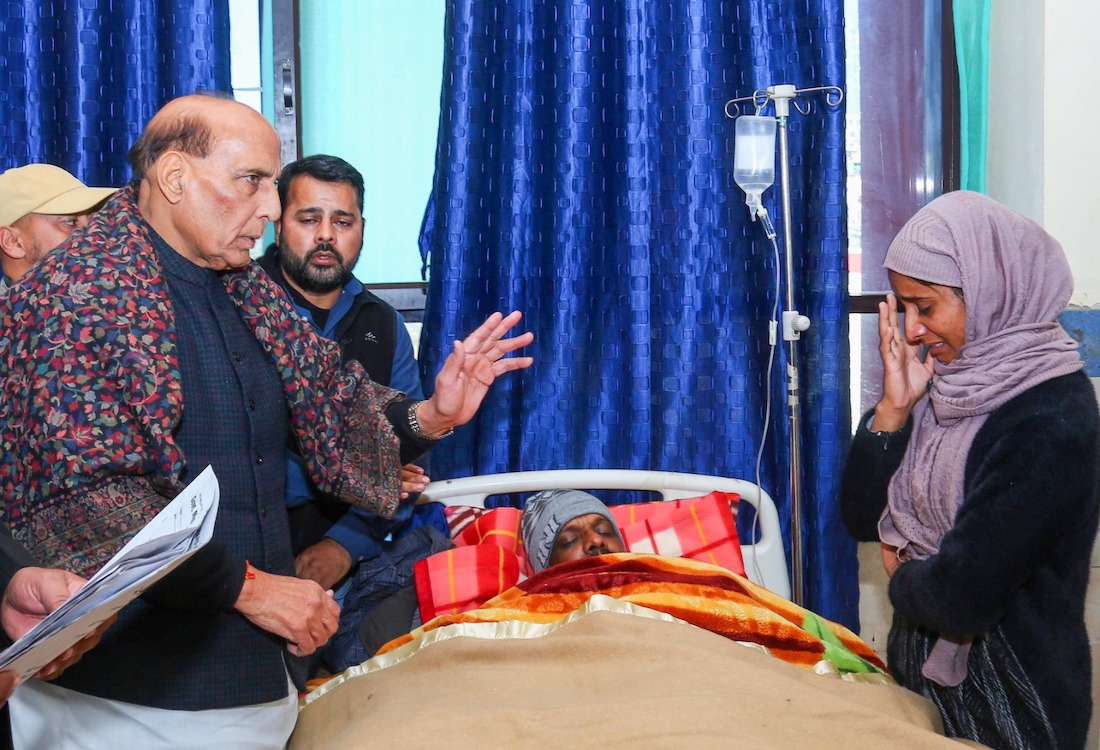
Labelling recent events as unfortunate, Singh directed all ranks to conduct operations based on credible intelligence and established procedures supported by niche technology. “Zero tolerance for SOP violations,” he said.
During his Rajouri visit, Singh, accompanied by Chief of Army Staff General Manoj Pande and General Officer Commanding-in-Chief, Northern Command Lt Gen Upendra Dwivedi, delved into the heightened security situation post a surge in militancy. Detailed briefings on security, counter-infiltration grid, and operational preparedness were presented. Singh discussed operational challenges with ground commanders, urging professional conduct and diligence.
Singh had an interaction with the families of the slain trio in which he assured justice. He later drove to the GMC where he enquired about the welfare of civilians injured in the custody of the armed forces.
A Cry for Justice
The families of one of the three individuals reportedly killed in the army’s custody, a day after the ambush on army vehicles in Poonch last week, claim to have received Rs 10 lakh compensation from the army, a man close to Showkat Ali said.
A relative of the late Showkat said, “Officials promised money and jobs during their visit on Tuesday. But, we wonder, is that enough? Shouldn’t those who killed my innocent cousin face the death penalty?”
Like Showkat, many others who knew the killed three are in anger and pain at the same time and demand answers.
Advocate Guftar Choudhary, Spokesperson for Gujjar Bakarwal Youth Welfare Conference Jammu and Kashmir provided insights into the current situation, stating, “Everything is closed, including the internet. Furthermore, outsiders are not allowed, especially those who express their opinions. Relatives visit for respect, but there’s an atmosphere of fear everywhere.”
As per Guftar, similar conditions prevail in other villages. Fear permeates the entirety of Rajouri-Poonch for over two years, creating a vastly different situation.
The New Battle Feild
The Baffliaz attack adds to the tally of eight major militant incidents that unfolded in the Poonch-Rajouri belt within a span of 26 months, from October 11, 2021, to December 21, 2023. In these eight attacks, 35 soldiers died. Notably, 19 of these casualties occurred this year – on April 20 at Bhatta Durian Poonch; May 5, at Kandi Rajouri; November 22 at Bajimaal Dharamshala, Kalakote Rajouri, and December 21 near Dera Ki Gali (DKG), Poonch.
The latest ambush underscores the enduring presence and adaptability of battle-hardened militant cadres in this geopolitically sensitive region, officials said. Despite being numerically fewer, these militants have entrenched themselves along the border and exhibit familiarity with the local terrain.
Despite rigorous surveillance, militants have been traversing through the Mughal Road and hilly forest terrain surrounding Pir Ki Gali. Certain militant groups have historically used these routes to enter Kashmir from Pakistan, bringing arms and ammunition.
The dense vegetation atop hills creates an ideal environment for militants to conceal themselves and move discreetly for extended periods. Despite logistical advantages, security forces and the Jammu and Kashmir Police have neutralised various Pakistani and Kashmiri militant groups over the tumultuous 34-year period.
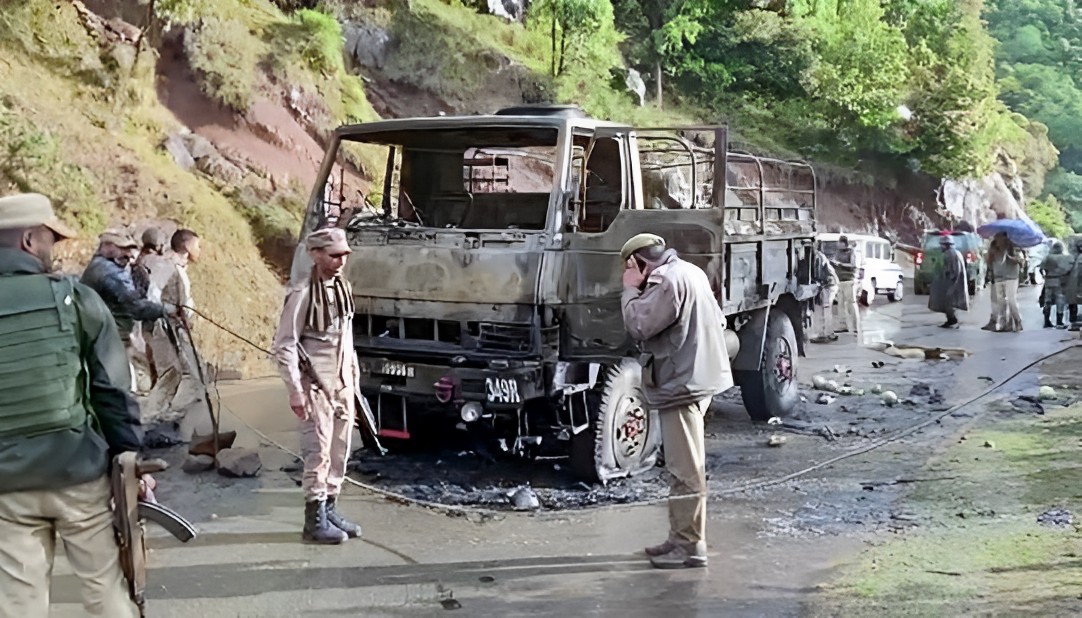
The Pakistani militants have maintained a presence, albeit seemingly small yet often deceptive, in the local ethnic pockets of the Poonch-Rajouri population. The recent killing of Mohammad Riyaz, aka Abu Qasim, in Rawlakot, across the Poonch LoC, on September 10, 2023, reflects the complex dynamics. Only a few days later a militant group at Kokernag in Kashmir’s Anantnag district killed four soldiers including a DySP of the JK Police.
Within days after the Topi Pir ambush, Jammu and Kashmir Police former Chief, SP Vaid, hit up social media to point fingers at ‘poor intelligence’ for the constant militant hits in Rajouri-Poonch. He pitched a creative fix: bring in the locals. Vaid reckons their backyard wisdom could help kick out the troublemakers, making the region a tad less militant and a bit more peaceful.
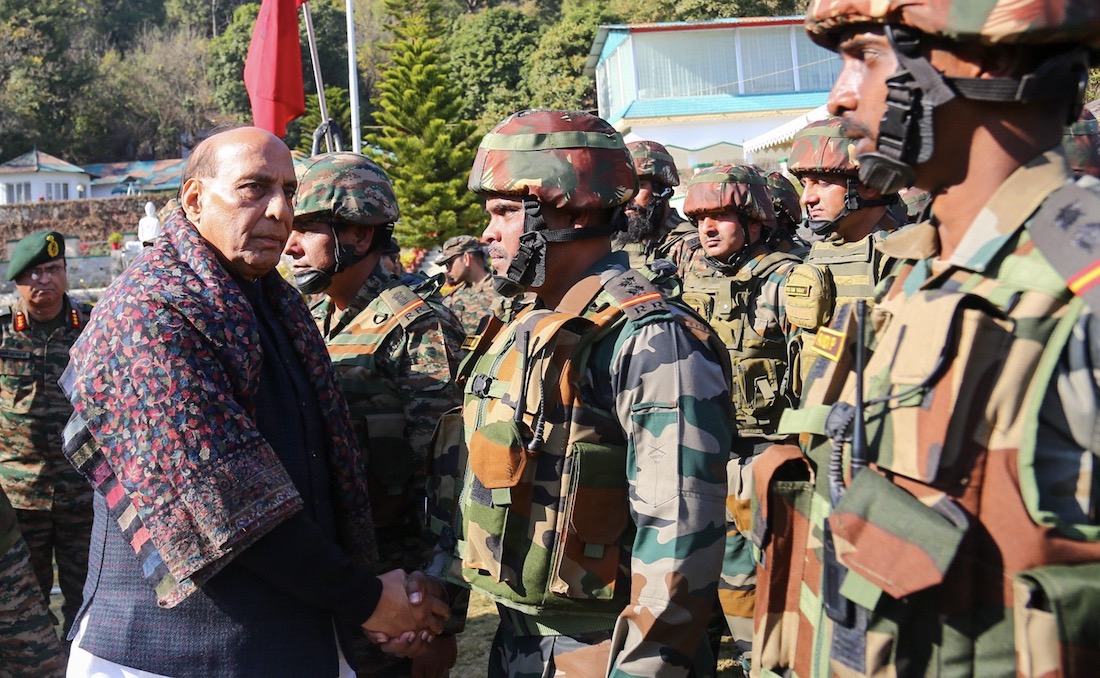
The Poonch Jageer
Under intense pressure in Kashmir, militancy seemingly has chosen to survive and revive in the Rajouri in Poonch. The area has challenging topography and almost homogenous demography straddling the Line of Control. The entire region along with the twin districts on the other side of the divide have been the same agro-economic and socio-political culture till the partition. Both sides know each other better.
So many people within the security grid think the area may have tunnels and an operation is still on to scan the challenging belt’s dense forests. Most of the attacks that took place in recent years are not far away from the LoC. These incidents are taking place at a time when society is in a state of flux. The region was aligned with South Kashmir as a Lok Sabha constituency even though the region lacks road access to Anantnag. In the last few years, the area has witnessed an intense narrative battle for reservations.
The Defence Minister’s visit to the area indicates that the political leadership in Delhi is aware of the importance of the region and is keen that the tensions are managed quickly. “We all – I, LG Sahib and Prime Minister Ji – are pained,” Singh told the kins of the slain trio. “Please have faith in us. Nobody can bring back the lives of those who have died. But there will be justice.”















